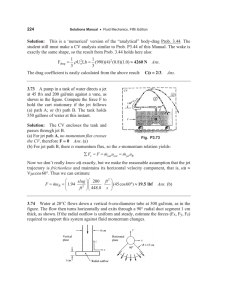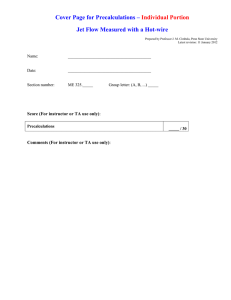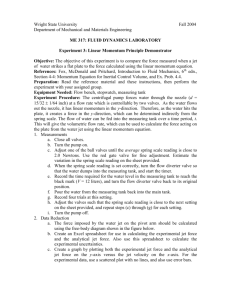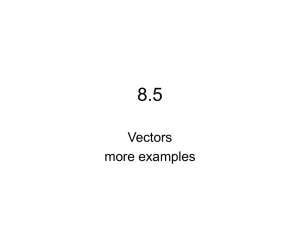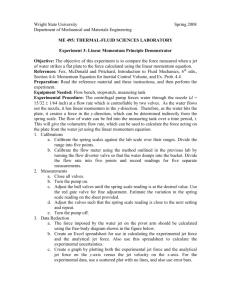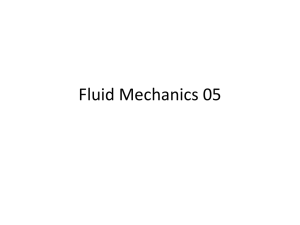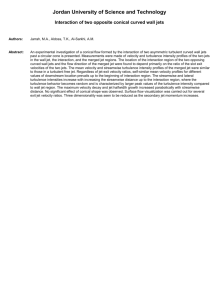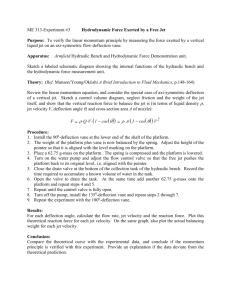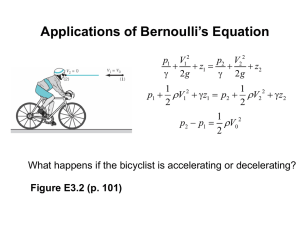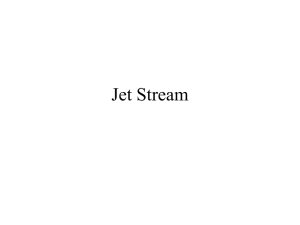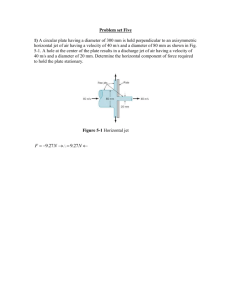Fluid Mechanics Homework #10 - ME 363
advertisement
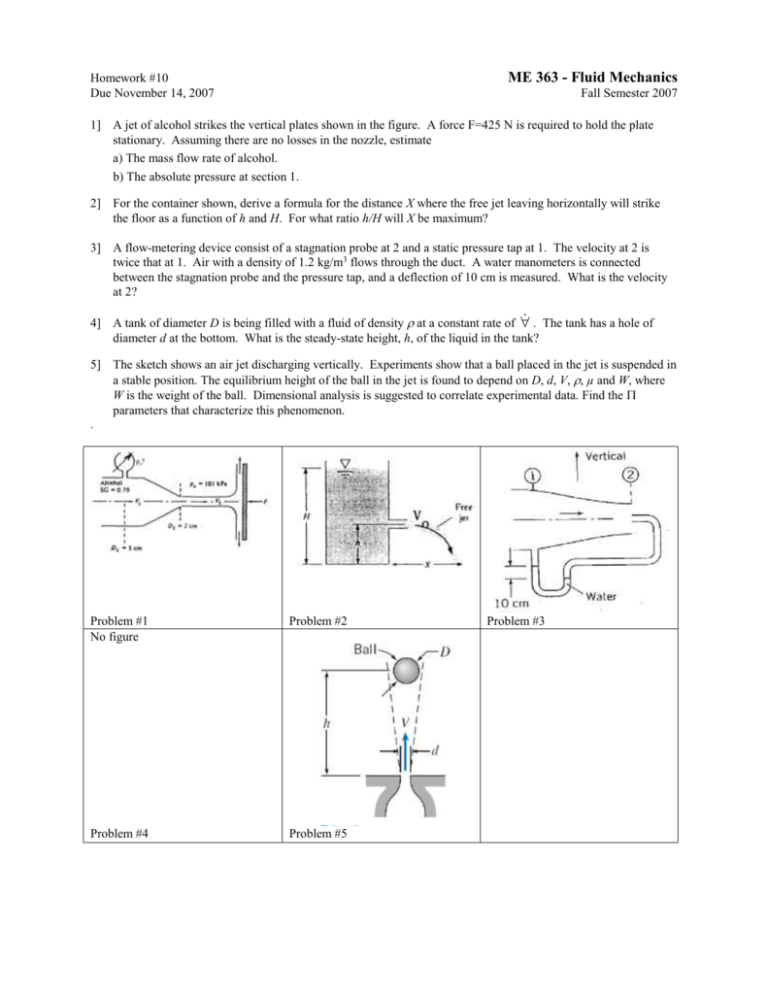
ME 363 - Fluid Mechanics Homework #10 Due November 14, 2007 Fall Semester 2007 1] A jet of alcohol strikes the vertical plates shown in the figure. A force F=425 N is required to hold the plate stationary. Assuming there are no losses in the nozzle, estimate a) The mass flow rate of alcohol. b) The absolute pressure at section 1. 2] For the container shown, derive a formula for the distance X where the free jet leaving horizontally will strike the floor as a function of h and H. For what ratio h/H will X be maximum? 3] A flow-metering device consist of a stagnation probe at 2 and a static pressure tap at 1. The velocity at 2 is twice that at 1. Air with a density of 1.2 kg/m3 flows through the duct. A water manometers is connected between the stagnation probe and the pressure tap, and a deflection of 10 cm is measured. What is the velocity at 2? . The tank has a hole of 4] A tank of diameter D is being filled with a fluid of density at a constant rate of diameter d at the bottom. What is the steady-state height, h, of the liquid in the tank? 5] The sketch shows an air jet discharging vertically. Experiments show that a ball placed in the jet is suspended in a stable position. The equilibrium height of the ball in the jet is found to depend on D, d, V, , µ and W, where W is the weight of the ball. Dimensional analysis is suggested to correlate experimental data. Find the parameters that characterize this phenomenon. . Problem #1 No figure Problem #2 Problem #4 Problem #5 Problem #3 1] A jet of alcohol strikes the vertical plates shown in the figure. A force F=425 N is required to hold the plate stationary. Assuming there are no losses in the nozzle, estimate a) The mass flow rate of alcohol. b) The absolute pressure at section 1. 2] For the container shown, derive a formula for the distance X where the free jet leaving horizontally will strike the floor as a function of h and H. For what ratio h/H will X be maximum? 3] A flow-metering device consists of a stagnation probe at 2 and a static pressure tap at 1. The velocity at 2 is twice that at 1. Air with a density of 1.2 kg/m3 flows through the duct. A water manometer is connected between the stagnation probe and the pressure tap, and a deflection of 10 cm is measured. What is the velocity at 2? . The tank has a hole of 4] A tank of diameter D is being filled with a fluid of density at a constant rate of diameter d at the bottom. What is the steady-state height, h, of the liquid in the tank? 5] The sketch shows an air jet discharging vertically. Experiments show that a ball placed in the jet is suspended in a stable position. The equilibrium height of the ball in the jet is found to depend on D, d, V, , µ and W, where W is the weight of the ball. Dimensional analysis is suggested to correlate experimental data. Find the parameters that characterize this phenomenon.
